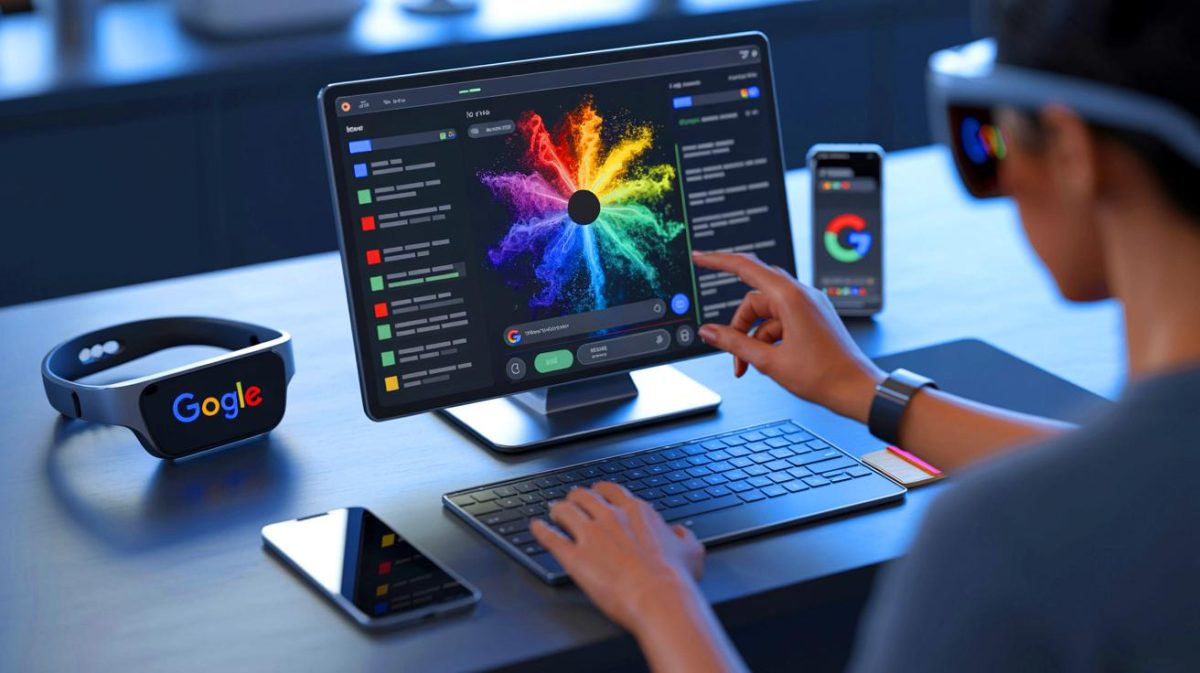| IN A NUTSHELL |
|
In the ever-evolving landscape of technology, Google has once again positioned itself at the forefront by introducing a revolutionary update to its search capabilities. The introduction of “AI Mode” marks a significant shift in how users interact with the web, transforming the traditional search experience into a more dynamic and conversational interaction. With the integration of advanced AI models, Google is not just enhancing search but also pushing the boundaries of what artificial intelligence can achieve in everyday applications. This transformation not only promises to change user experiences but also sets a new benchmark for technological innovation.
Search Gets a Smart Makeover
Google’s introduction of AI Mode is a landmark development in the realm of search technology. According to CEO Sundar Pichai, this innovation is a “total reimagining of search.” By shifting from a simple directory of links to an interactive AI assistant, Google aims to make its search engine more intuitive and user-friendly. The new features include AI-generated overviews, which allow users to get concise summaries of complex queries, enhancing their search experience significantly.
Moreover, Google has partnered with companies like Ticketmaster and Resy to incorporate ticket-booking capabilities, allowing users to make reservations and fill out forms directly through search. The introduction of a “Live” capability enables real-time interaction via cameras, further reshaping user engagement with the internet. This monumental change comes just months after initial testing, illustrating Google’s commitment to rapid innovation.
As Elizabeth Reid, VP and Head of Search at Google, noted, “People are coming to Google to ask more of their questions, including more complex, longer, and multimodal questions.” This shift in user behavior is a testament to the growing expectations for search engines to provide more than just basic information, underscoring the importance of AI in meeting these demands.
“OpenAI Poised to Take Over Chrome”: Shock Move Looms as Court Threatens to Break Up Google Empire
Eyes on the Future
In addition to revolutionizing search, Google is making strides in wearable technology with the revival of its smart glasses initiative. These new Android XR-powered glasses boast a suite of features, including a voice assistant, camera, and in-lens displays that discreetly provide information. With capabilities such as messaging, navigation, photo capture, and real-time language translation, these glasses are poised to redefine how users interact with their environment.
Google’s collaboration with eyewear brands Gentle Monster and Warby Parker highlights its strategic approach to entering the wearable market. Although no specific launch date has been provided, the anticipation is high, especially with competition from similar products developed by Meta Platforms and Ray-Ban. This move is part of a broader effort to expand Google’s ecosystem and leverage its expertise in AI to enhance everyday technology solutions.
As Google navigates the competitive landscape of wearable technology, its focus on creating a seamless user experience remains paramount. The integration of AI into wearable devices is a natural progression of the company’s vision to make technology an integral part of daily life.
The Influence of AI Overviews
The expansion of AI Overviews is another significant aspect of Google’s AI strategy. These conversational summaries offer users a quick and comprehensive understanding of their search queries, often appearing prominently in search results. With approximately 1.5 billion users engaging with AI Overviews regularly, Google has successfully shifted the paradigm from traditional web link rankings to more interactive and informative search results.
This change is indicative of a broader AI platform shift, as noted by Sundar Pichai: “We are in a new phase of the AI platform shift, where decades of research are now becoming reality for people all over the world.” The ability of AI to handle long, complex queries and provide concise, relevant information is reshaping how users access and consume information online.
As AI continues to evolve, the potential for further innovations in search technology is immense. Google’s commitment to leveraging AI to enhance user experience is a testament to its leadership in the technology sector, setting a high bar for competitors.
Collaborations and Future Prospects
Google’s strategic collaborations with industry leaders such as Samsung underscore its commitment to expanding the AI ecosystem. Samsung’s Project Moohan headset, powered by Android XR, demonstrates the potential for immersive screen experiences, providing users with a glimpse into the future of technology.
By working closely with hardware and software developers, Google aims to create a robust platform that supports a wide range of applications. This collaborative approach not only accelerates innovation but also ensures that products are designed with user needs in mind. As developer access to new technologies expands, the possibilities for creating customized, AI-driven solutions are limitless.
As Google continues to push the boundaries of what AI can achieve, the question remains: How will these advancements shape the future of technology and our daily interactions with digital devices?
Did you like it? 4.6/5 (28)









Wow, AI Mode sounds amazing! Can’t wait to see how it changes my search experience. 😃
Isn’t it a bit scary how fast AI is developing? 🤔